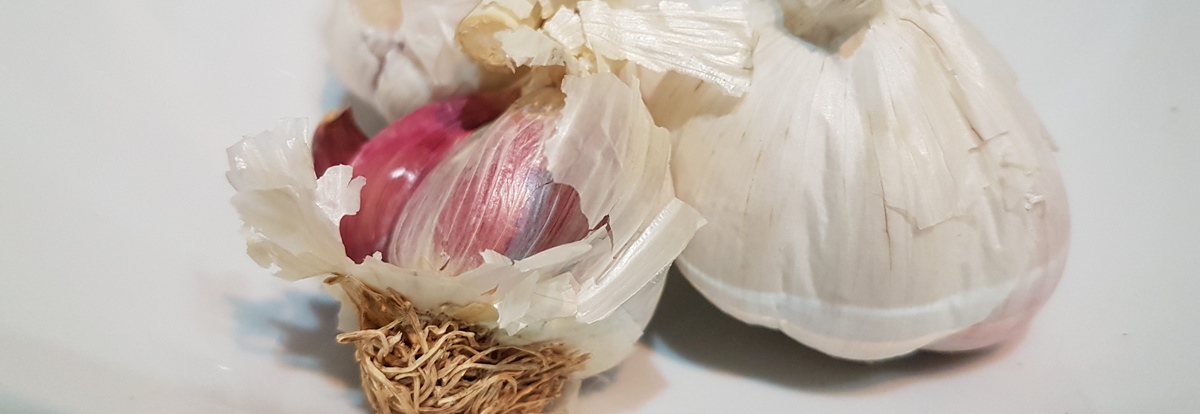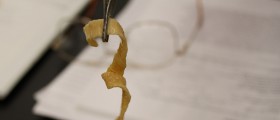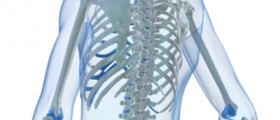Pinworms - Introduction
It is a common human intestinal parasite but occurs mainly in children. Infection usually occurs through the intake of pinworm eggs, either through contaminated hands, food, or less commonly, water. They do not present any serious medical condition, but they are considered to be very annoying, and therefore, one is in need to get rid of them as fast as possible. The female worm lays eggs around one’s anus, which may be transferred in several ways (through linens, skin, etc.) to the mouth, infecting a new host.
Symptoms
The most common symptom is itching around the anus. It may interfere with one’s sleep pattern, while the female worm mainly lays her eggs at night, which causes an increased reaction by the anal tissue. Seldom pinworms migrate into the urinary tract, causing itching sensation and irritation.

Treatments
Although both conventional medicine and homeopathy have the cure for pinworms, one should do his part regarding hygiene. Cleanliness is one of the best ways of getting rid of pinworms. Hands need to be washed often and thoroughly; linen, towels, underwear, and toilets need to be especially clean, surfaces, where one prepares food, need to be regularly washed, etc.
Usually doctors prescribe albendazole or mebendazole. It s advised that everybody in one household be treated because they all might have pinworms.
Homeopathic Remedies
Some herbs, such as agrimony, wormwood, and licorice root, have been proven to soothe the digestive tract and boost the immune system. As a part of one’s morning routine, one should eat a cup of carrots that have been shredded. Only eat the carrots, not any additional meals. It helps the digestive system force out the worms.
One should eat, as often as possible, beets, raw garlic, a mix of papaya seeds and honey, or pumpkin seeds. All of this food contains anti-worm properties. Shaved and shredded coconut should be eaten with breakfast.
After 3 hours have passed, one should consume a dose of castor oil, which works as a laxative. Before bed, one should apply a mixture of a teaspoon of Vaseline and a quarter clove of garlic to one’s anal region.
Chamomilla and Cina have a beneficial effect on the digestive system, which may help a person expel the worms quicker.
Being that this condition is relatively harmless, homeopathic solutions to this problem are often quite enough to help a person with pinworms.
- Conventional medical treatments can get rid parasites more quickly and with fewer side effects than most alternative treatments. Alternative treatments may be helpful along with conventional medications. However, your doctor must find out what kind of organism is causing your problems before you start treatment. The following nutritional guidelines may help keep parasites from growing.
- As with other treatments, your health care provider must first diagnose the kind of parasite you have. Before prescribing a remedy, homeopaths take into account a person's constitutional type, includes your physical, emotional, and intellectual makeup. An experienced homeopath assesses all of these factors, as well as any current symptoms, when determining the most appropriate remedy for a particular individual. The following remedies may be used: Cina, Cuprum oxidatum nigrum, Indigo, Teucrium, Podophyllum, Spigelia, Sabadilla, and Stanum.
- Many of the herbs used to treat intestinal parasites have toxic side effects or interfere with other medications. Use them only under the supervision of a qualified practitioner. Your health care provider should treat you with the most gentle herb that is effective for the type of parasite you have. A few of the herbs that your provider might consider include: Garlic (Allium sativum), Barberry (Berberis vulgaris), Goldenseal (Hydrastis canadensis), Oregon grape (Berberis aquifolium), Anise (Pimpinella anisum), Wormwood (Artemisia annua), Curled mint (Mentha crispa), Black walnuts (Juglans nigra).
- Your doctor will retest your stool to be sure your parasite is gone, and will give you advice to help you avoid getting infected again. Follow these instructions carefully. Getting a parasite a second time can cause more serious health problems.



_f_280x120.jpg)













Your thoughts on this
Loading...